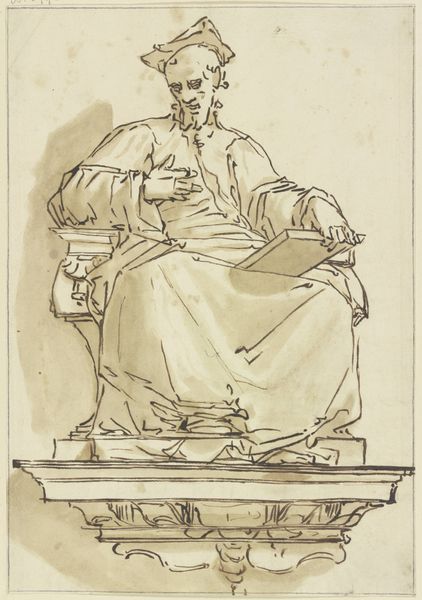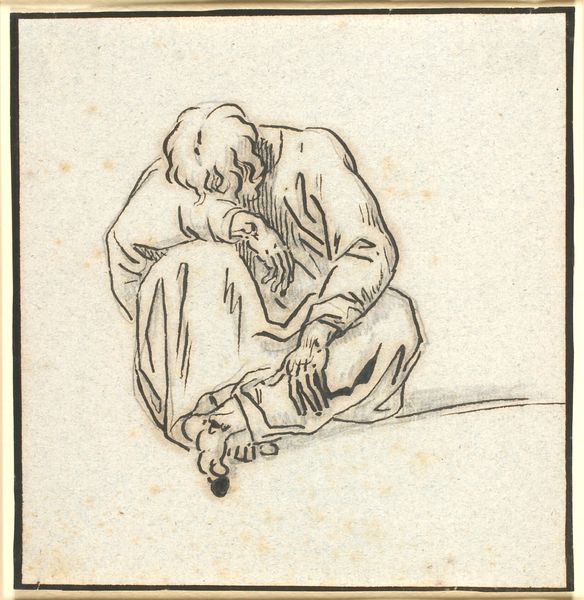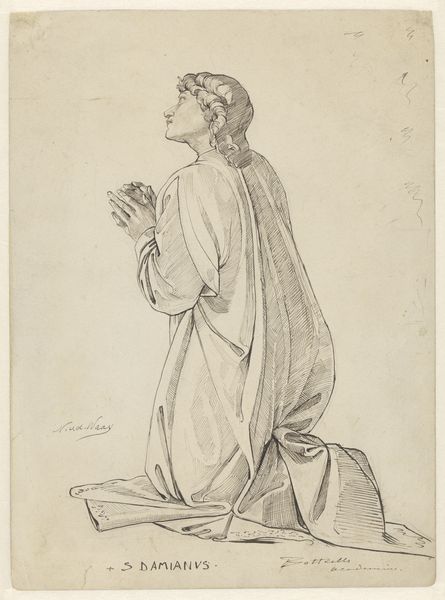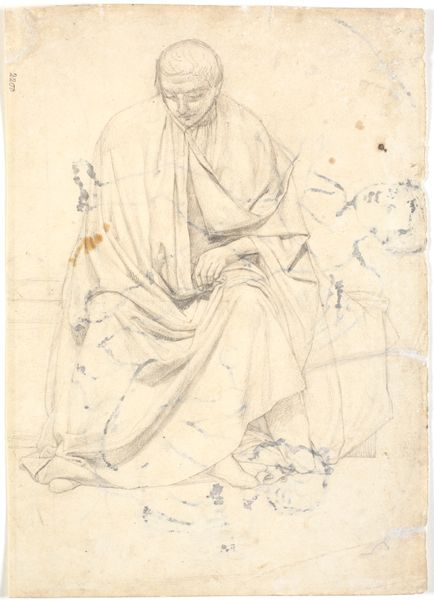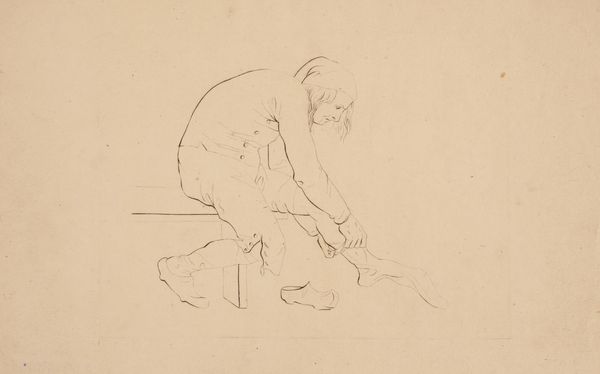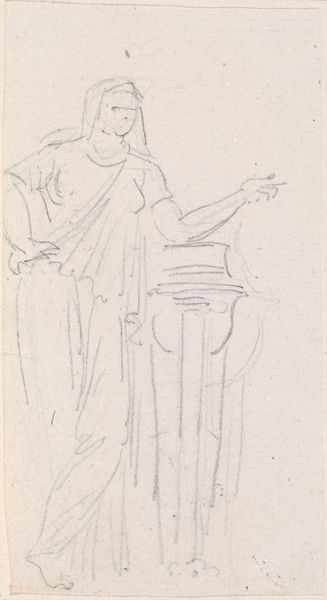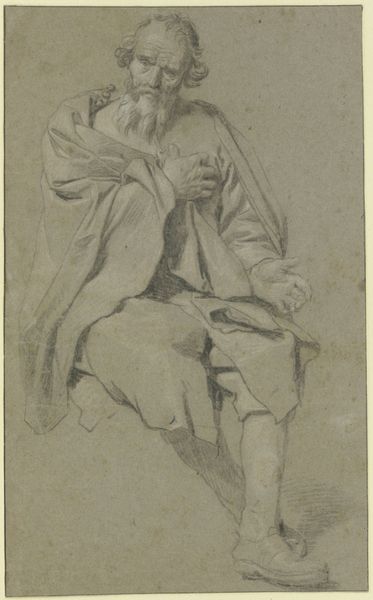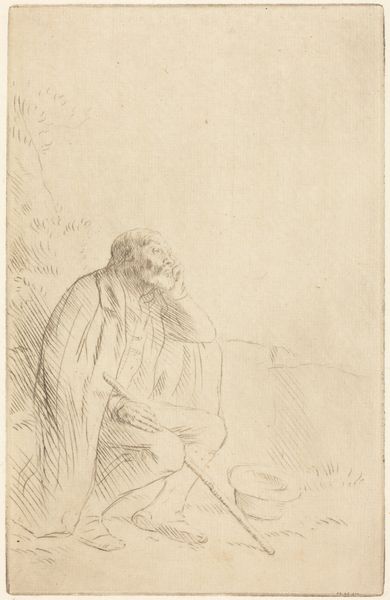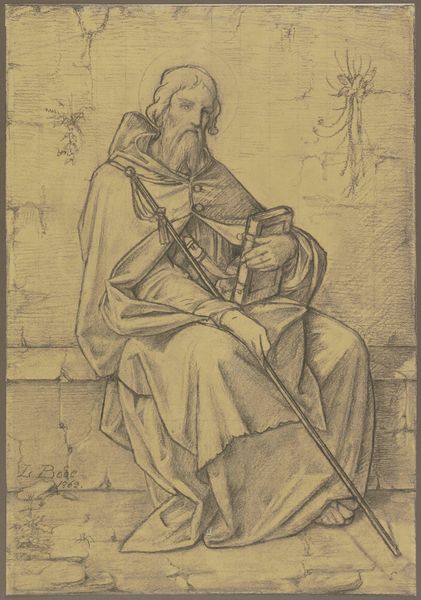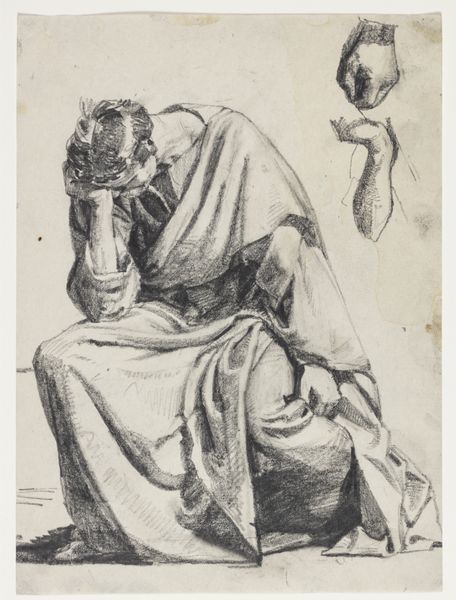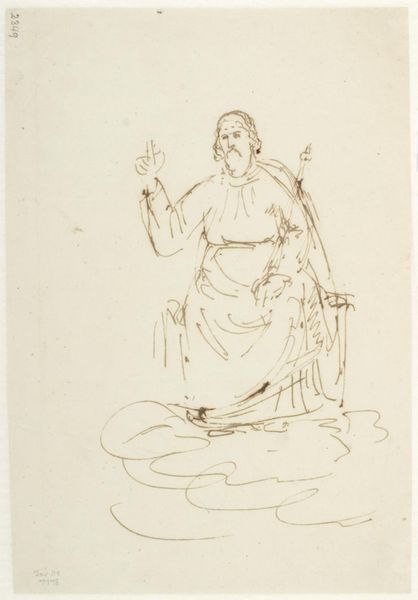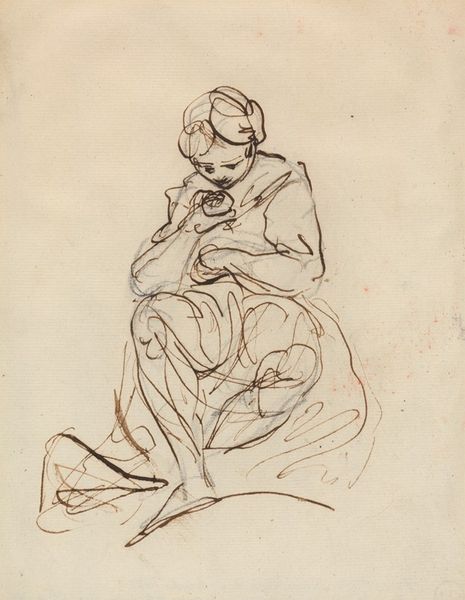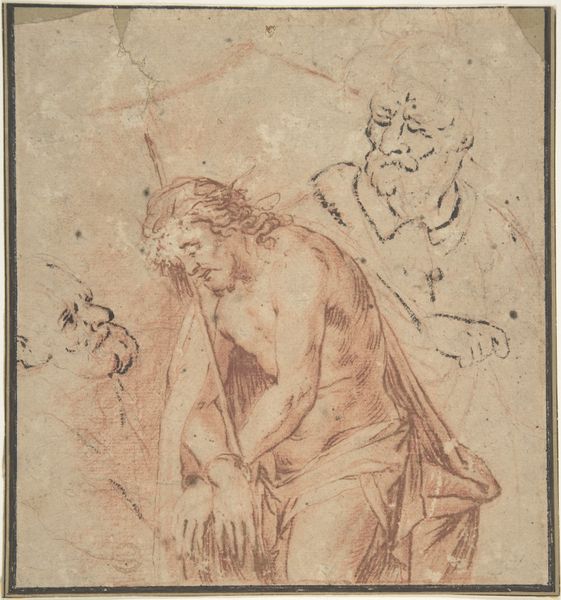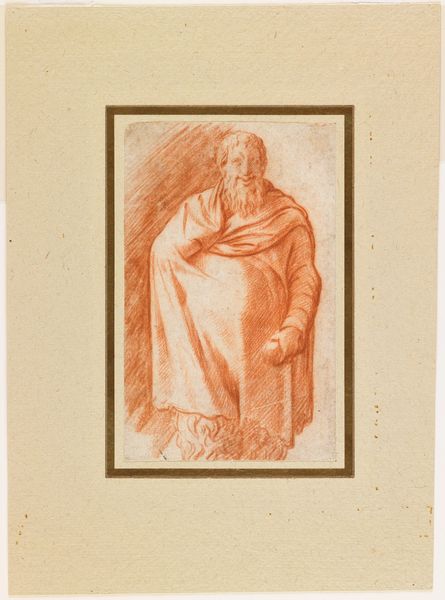
En olding i antik dragt, siddende på en taburet, i profil t.v. 1743 - 1809
0:00
0:00
drawing, ink
#
portrait
#
drawing
#
ink drawing
#
etching
#
figuration
#
ink
#
ancient-mediterranean
#
academic-art
Dimensions: 220 mm (height) x 168 mm (width) (bladmaal)
Editor: This is "An old man in antique clothing, sitting on a stool, in profile to the left," an ink drawing by Nicolai Abildgaard, sometime between 1743 and 1809. It’s simple, but there’s a gravitas to the figure. What do you see in it? Curator: This drawing really highlights the Neoclassical interest in antiquity during the late 18th and early 19th centuries. Abildgaard, like many artists of his time, was deeply influenced by classical ideals of beauty and virtue. What kind of audience was the artist trying to target? Editor: Perhaps wealthy patrons interested in philosophical subjects? Curator: Precisely! The choice of depicting an old man in ancient attire serves a purpose. It's not just a portrait, it's an idealization of wisdom, experience, and a connection to a glorious past, a political statement through imagery. Think of the French Revolution and the ways antique imagery were used. Editor: So, he's not just drawing a person; he's drawing an idea. Curator: Exactly. And look at the medium – ink drawing. It allows for a clarity of line and form that echoes classical sculpture, doesn't it? There is a precision of the line and of the construction of the character that refers to academic art. How do you think this relates to the burgeoning museum culture of the time? Editor: Hmm, maybe it speaks to a growing desire for art to be educational and morally uplifting. Thanks! I hadn't thought about the relationship with political contexts. Curator: Absolutely! Understanding art means situating it within its time, the forces at play.
Comments
No comments
Be the first to comment and join the conversation on the ultimate creative platform.
